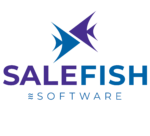 By Rick Haws
By Rick Haws
President & Co-Founder, SaleFish
It’s been more than a full year since the onset of the global pandemic and as with the rest of the world, the real estate industry has undergone pivotal changes to provide immediate solutions for business continuity. As an industry professional with over 25 years of experience, I have seen first-hand how the real estate community can be resistant to change. Organizations like ours have been innovating options for digital selling and increased efficiencies for years. The digital transformation of real estate is not new, but the pandemic has significantly accelerated this process. We’re seeing an unprecedented rate of adoption for PropTech like digital sales software enabling builders and agents to sell remotely in real time with cloud-based technology. Through necessity, they are reshaping and rethinking the way they transact business, which will prove to have significant long-term rewards.
What is particularly interesting about this catalyst for change is that beyond the increased demand for digital real estate sales software, early adopters of this technology are expanding their software footprint to create new efficiencies for their operations and shifting gears on how they communicate with prospective buyers.
Presentation centres can no longer be the only point of interaction with purchasers – builders and agents are quickly learning that there are various avenues for educating prospective buyers. Paper brochures have pivoted to digital portals to give full access and visibility to sales assets – by a simple click of a button, agents and developers are now able to showcase projects and the surrounding communities all virtually. Our SaleFish team recently powered sales for Cachet Homes’ ParQ project, a community of townhomes in Brantford, and they sold out of all 150 units in four days using this technology without a sales centre.
The industry has also recognized the importance of providing prospective buyers with early access to information. Traditionally, information such as sales pricing and floor plans were withheld until the sales launch, but now, it is a common practice to share assets ahead of time to ensure buyers are fully educated when looking to make a decision. Not only does this increase overall efficiency, but also allows for increased transparency – these are major shifts from the conventional pen-and-paper ways and, needless to say, this has rapidly improved profitability.
Selling real estate online also means communicating sensitive information on the web, so cybersecurity has become an important industry conversation over the past year. I recently spoke at the Buzz Conference in March about this topic and we conducted a survey with over 100 industry players. What’s especially interesting is that although cybersecurity is a top priority for the majority of these professionals, less than seven percent felt very prepared for possible cyber threats. We’re expecting an educational reform in the industry with builders and agents improving their knowledge for how they should treat data and manage devices that are at risk of being compromised. Our SaleFish team continues to be a leader in this important conversation, and we’re excited to see more discussion on the topic.
One of the most significant changes we’re seeing in the industry today is not that of hardware or software, but that of mindset and attitude. Customer behaviours and preferences are changing and those who have long been reluctant to buy into the digital transformation are now firmly on board. Prospective buyers are more comfortable than ever before interacting with developers and/or agents online and signing agreements digitally. During a recent launch, 75% of the buyers choose to have online appointments.
Above all, a key takeaway is that the digitalization of real estate is here to stay. The last year has taught us that change allows for innovative approaches to business and helps us expand our capabilities by putting customer experiences and expectations at the heart of everything we do. Moving forward, technology will be embedded in all aspects of real estate. The streamlined sales process will be an ongoing asset to the industry, and the proficiencies of selling virtually will continue to be vital for reaching remote buyers.
Rick Haws is President & Co-Founder of SaleFish, a cloud-based sales solution provider in the real estate industry. SaleFish’s proven platform improves real estate sales efficiency by 75% and has completed more than 150,000 transactions valued at over $55 billion USD in the last 15 years. With its head office based in Toronto, SaleFish is also the only company in the real estate industry to be certified by Cyber Essentials Canada. SaleFish is scaling up on a global level, recently expanding into Australia, Turkey and the Middle East. Around the world, they are enabling real estate professionals to transact digital documents with e-signatures, ID scanning and identity verification to complete a sales agreement in as little as four minutes, while also allowing buyers to purchase from the comfort of their own home.
To learn more, contact info@salefishsoftware.com



